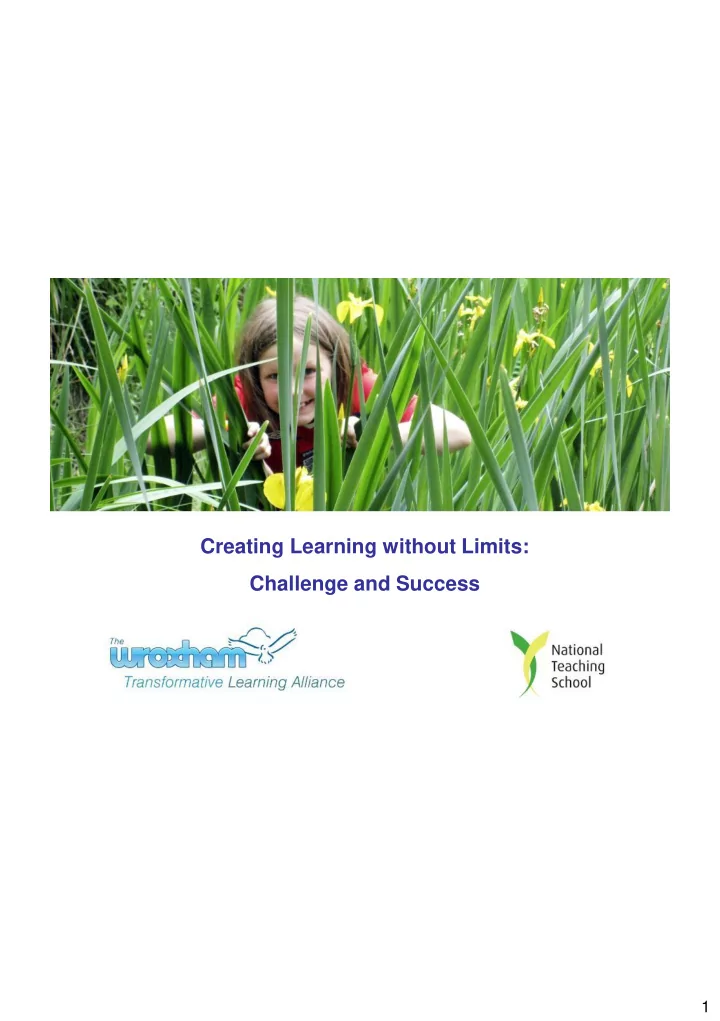

Creating Learning without Limits: Challenge and Success 1
Baseline assessment? 2
3
Escaping from the bottom set Hargreaves (1982) argues that ability labelling leads to ‘destruction of dignity so massive and pervasive that few subsequently recover from it’ 4
Working as a team • Living the vision of trust, co agency and inclusion • Developing a listening school • Mutual respect • Enabling and supporting • Monitoring the quality of learning not the quality of teaching • Encouraging risk taking 5
Whole school democracy Everyone is valued A participative culture Weekly mixed age circle meetings Shared decisions 6
Learning without Limits • A study of teachers who rejected fixed ability labelling ‘Learning without Limits’ (2004) • ‘Creating Learning without Limits’ 2012 7
Thinking differently about professional learning 8
Professional learning: Trust • Listening not telling • Freedom for staff team to make their own choices and judgements • Put in place structures that create rich contexts for learning • Provide open-ended curriculum experiences 9
Professional learning: Co-agency • Thinking in partnership • Making suggestions • Shared involvement • Helping bring ideas to fruition • Feeding in ideas and interesting materials • Asking questions • Challenging • Encourage resistance to safeguard values 10
Professional learning: Everybody • Maximise opportunities for all staff to learn from each other • Value different ways of working • Capitalize on differences to inspire teaching • Create structures to encourage mutual support 11
Dispositions within the Intellectual domain Inventiveness, questioning, openness Powerful, autonomous learners 12
Dispositions within the Affective domain • Persistence • Stability Powerful, autonomous learners 13
Dispositions within the Social domain • Generosity • Empathy Powerful, autonomous learners 14
Organisation of learning • Children choose levels of challenge. • Children choose learning partners. • Children self assess and peer assess. • Learning Review days. • End of year reports form a learning dialogue. Freedom to learn 15
Curriculum • Children contribute to planning • Authentic first hand experiences • Open ended challenging tasks • Engagement in discussions about being a good learner Freedom to learn 16
Learning relationships • Relationships within the entire school community are based on trust and acceptance. Freedom to learn 17
Assessment • The discourse of choice and challenge is embedded from the earliest days in school • Children are involved in self assessment continually and know that this process is purposeful • Learning Review meetings provide a forum for dialogue about each individual child with families • Peer review is based on trust Freedom to learn 18
An opportunity to work together to change thinking …… 19
Recommend
More recommend